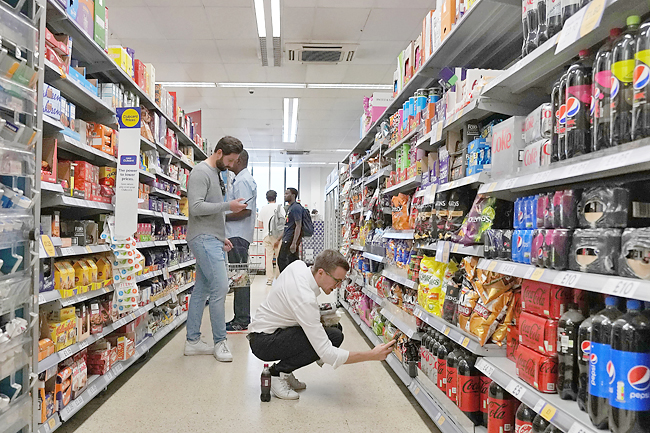LONDON (AP) – Britain’s new Conservative government announced yesterday it will cut personal income tax, scrap a planned tax hike on businesses and lift a cap on bankers’ bonuses as part of contentious moves to boost the faltering economy.
Treasury chief Kwasi Kwarteng said there were “too many barriers for enterprise” as he put lower taxes top of the government’s agenda.
Kwarteng announced in his “mini budget” that he was reversing a hike in national insurance taxes that was introduced by the previous government in May to help pay for health and social care. He said the basic rate of income tax will fall from 20 per cent to 19 per cent next year. The top rate will go from 45 per cent to 40 per cent.
“We need a new approach for a new era, focussed on growth,” he told lawmakers in the House of Commons.
Prime Minister Liz Truss, who became the United Kingdom’s (UK) leader less than three weeks ago, has repeatedly stressed that her Conservative government’s core mission is lowering taxes to drive economic growth.
She declared this week that she is ready to make “unpopular decisions” such as boosting bankers’ bonuses to attract jobs and investment.

Yesterday’s statement was billed as a “fiscal event” rather than a budget because it’s not accompanied by an analysis of its costs from the independent Office for Budget Responsibility. Opponents say the government is dodging scrutiny.
“Never has a government borrowed so much and explained so little,” said economy spokeswoman for the opposition Labour Party Rachel Reeves.
The plan runs counter to the view of many Conservatives that governments shouldn’t rack up huge debts that taxpayers will eventually have to pay. And there are worries it could undermine confidence in the UK economy, which has already seen the pound sink to near 40-year lows against the US dollar. Sterling fell below USD1.12 yesterday before Kwarteng’s statement.
Soaring inflation and a cost-of-living crisis driven by steeply climbing energy costs are the biggest immediate challenges facing Truss’ government. Inflation stands at 9.9 per cent, near the highest Britain has seen since the 1980s, and is predicted to peak at 11 per cent in October.
The Bank of England said Thursday that the UK may already be in recession, defined as two consecutive quarters of economic contraction.
It expects gross domestic product to fall by 0.1 per cent in the third quarter, below its August projection of 0.4-per-cent growth. That would be a second quarterly decline after official estimates showed output fell by 0.1 per cent in the previous three-month period.
In the past two weeks, the government has announced that the government will cap gas and electricity bills for households and businesses, amid fears that the poorest won’t be able to afford to heat their homes and companies will go bust this winter.
Some economists have warned about the sharp rise in government borrowing.
The Institute for Fiscal Studies warned that borrowing is set to hit GBP100 billion (USD113 billion) a year even after the temporary energy bills support measures come to an end in two years’ time. The research institute said that with such levels of debt, officials’ claims that reducing tax rates would lead to sustained economic growth was “a gamble at best”.
Director of the institute Paul Johnson also said that the Conservative government’s measures to help millions pay their energy bills won’t reverse a steady drop in living standards.
“I am afraid that the energy price shock has made us poorer and we will be worse off,” he said. “The government can spread the pain over time and between people, but in the end it is not going to be able to magic it away.”
Kwarteng also announced new “investment zones” across England where the government will offer tax cuts for businesses and help create jobs.
He will also give details on how the government aims to accelerate dozens of major new infrastructure projects, including in transportation and energy.
Truss – who is inspired by Margaret Thatcher’s small state, free market economics – has insisted that growing the economy and tax cuts for businesses will benefit everyone in the country.
But critics said Truss’ right-wing instincts are the wrong response to the UK economic crisis.







